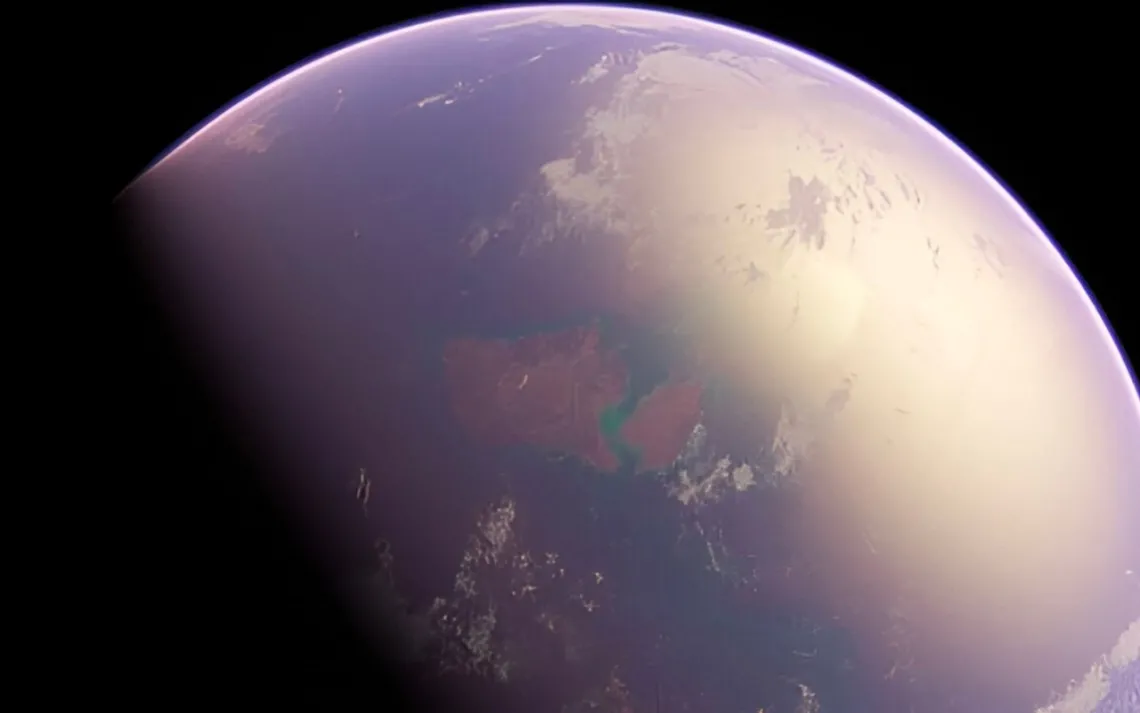Entropy Could be Key to a Planet’s Habitability

Artist’s impression of Earth in the early Archean with a purplish hydrosphere and coastal regions. Even in this early period, life flourished and was gaining complexity.
Credit: Oleg Kuznetsov
We all know that to have life on a world, you need three critical items: water, warmth, and food. Now add to that a factor called “entropy.” It plays a role in determining if a given planet can sustain and grow complex life.
Scientist Luigi Petraccone, a chemistry researcher at the University of Naples in Italy, looked at planetary entropy. He’s interested in how scientists select planets that could be habitable. He published a paper in Monthly Notices of the Royal Astronomical Society that examines something called “planetary entropy production” (PEP). Here's how it works.
A habitable world needs a biosphere with stuff living inside it. All life grows and expands, using the available water, warmth, and food resources. As it turns out, entropy plays out inside a world's biosphere. And, it needs a relatively high PEP. That makes it more likely to have complex living systems and means it would be a good target for exploration. And, according to Petraccone’s paper, it doesn’t matter what the chemical basis for that life is—whether carbon, silicon, or some other element. What matters is how life proceeds to greater complexity.
